Faculty Honored as AAAS Fellows
The American Association for the Advancement of Science (AAAS) announced the 2021 AAAS Fellows January 26, 2022. Five faculty from the College of Arts and Sciences are in this year’s class and include Brad Day, Mircea Podar, and Steven Wilhelm from the Department of Microbiology; Linda Kah from the Department of Earth and Planetary Sciences; and Hanno Weitering from the Department of Physics.
“The election of five of faculty to the AAAS Fellows is a great honor for our college and the university,” said Theresa Lee, dean of the College of Arts and Sciences. “These faculty go above and beyond in their disciplines, not only as researchers, but as mentors who inspire our students throughout their academic careers.”
They join a distinguished group of UT faculty recognized as AAAS Fellows. Elected annually by the AAAS Council, Fellows are scientists, engineers, and innovators recognized for their achievements across several disciplines.
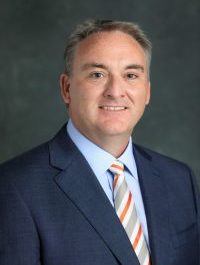
Day’s research focus is on immune signaling and the role a muscle contraction protein called actin plays in pathogen response. A dynamic network of actin polymers and associated binding proteins – the actin cytoskeleton – is a critical signaling component required for a host to respond to pathogens.
“Our research developed new methods and insight into how the dynamics of the plant cytoskeleton regulates the immune system, gene expression, and response to the environment,” Day said.
Day’s position at UT represents a transition in his career. In his role as AVC for research innovation initiatives, Day has the opportunity to share, mentor, and support the research of UT faculty and student scholars.
“In my new role at UT, the AAAS Fellows honor will serve as a constant reminder of why I am here,” Day said. “This recognition is a loan, and one that I will continually pay back to the scientific community. It is a fitting preface for the next chapters of my career – a collection that I plan to write with the help of the Volunteer community.”
Mircea Podar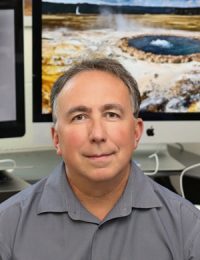
“I value the opportunity to have a joint affiliation with UT, which has enabled me to advise students and postdocs as well as to have projects jointly between ORNL and UT,” Podar said. “Projects funded by DOE, NSF, and NIH have led to important discovers, additional research collaborations, and provided the foundation for interactions with UT faculty.”
In his role as a professor in the microbiology department and the genome science and technology graduate program, Podar has the opportunity to help graduate students and postdocs develop their careers in the scientific community.
Steven Wilhelm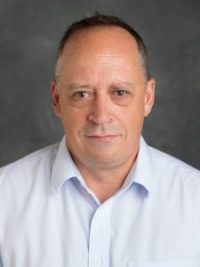
“From the onset, research in my lab has had a major focus on viruses, but more recently, a new focus on toxic cyanobacteria in fresh waters has been a focus with projects having been completed in Canada, China, Uruguay and across the United States,” said Wilhelm, who shared the 2021 John Martin Award from the Association for the Sciences of Limnology and Oceanography for his first paper from UT. The award recognizes a paper in aquatic sciences that is judged to have had a high impact on subsequent research in the field.
“The honor is a symptom of having surrounded oneself with dedicated and motivate students and colleagues,” Wilhelm said. “It highlights the importance of investing into our undergraduate and graduate students and postdocs with respect to creating opportunities for research.”
The Wilhelm group continues to be a leader in the application of the tools of molecular biology to the diagnosis of the factors that cause major blooms in locations like Lake Erie.
Linda Kah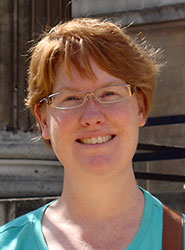
“In my research, I must admit that I do not often take time to consider the long view,” Kah said. “The work I am doing presently with the Perseverance rover, where we are collecting the first in situ samples of Mars that will be returned to Earth, will have an impact far into the future. In terms of the overall geosciences, however, there are scientists who are true visionaries, and others who are best described as the details people. I clearly fall in the category of being a details person.”
Kah uses direct observations to place fundamental constraints on how the early Earth, and Mars, evolved through time, which she said is rarely groundbreaking on the short term, but incrementally adds to our knowledge and the impact of that knowledge will add up through time.
Her research agenda takes her around the world, and even to Mars, but rarely follows an academic calendar, so Kah is grateful to her department and college leadership for their support.
“I look at the other AAAS fellows in the geological sciences and I see people who I have long considered my heroes in the science. It is weird—and at the same time incredibly humbling—to see my name in the same list,” Kah said. “As honored as I am by this recognition, I do not see it as career changing. I will continue to do the research I love and try to bring my love of the geosciences to the students here at UT.”
Hanno Weitering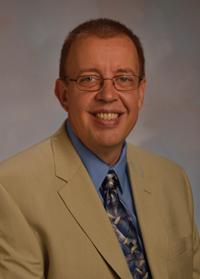
Most recently, Weitering and his colleagues devised a novel superconductor from the ground up by modifying a conventional semiconductor. The system requires only a few tin atoms “decorating” a silicon surface. It’s a simple platform, but one with surprising and potentially useful properties. Fundamental studies like these are the basis for breakthroughs often taken for granted.
“Materials physics is really important for developing new materials for technological applications, although they may not yet be around the corner,” Weitering said. “It took 40 years or so between the conception of the transistor and large-scale commercial success.”
Election as an AAAS Fellow is a lifetime honor and all Fellows are expected to meet the commonly held standards of professional ethics and scientific integrity. Eligible nominees are members whose efforts on behalf of the advancement of science or its applications are scientifically or socially distinguished and who have been a continuous AAAS member for at least four years leading up to the year of nomination. Fellows have included Thomas Edison, W.E.B DuBois, Maria Mitchell, Steven Chu, Ellen Ochoa, and Irwin M. Jacobs.